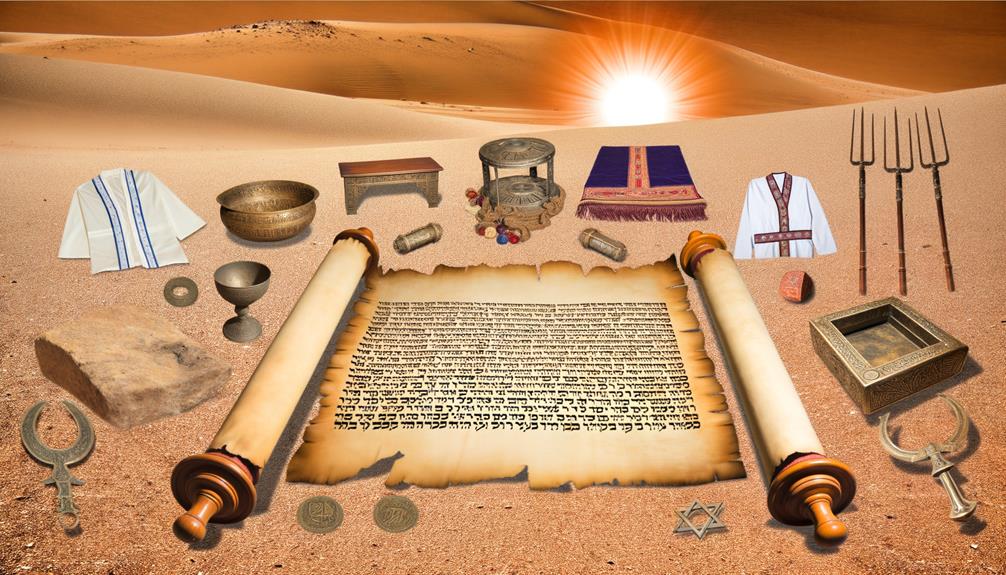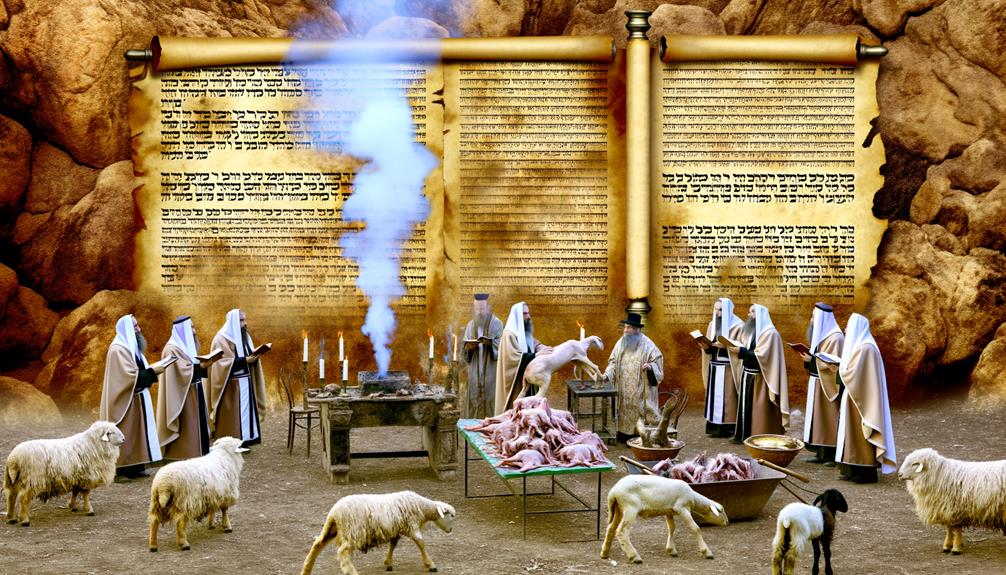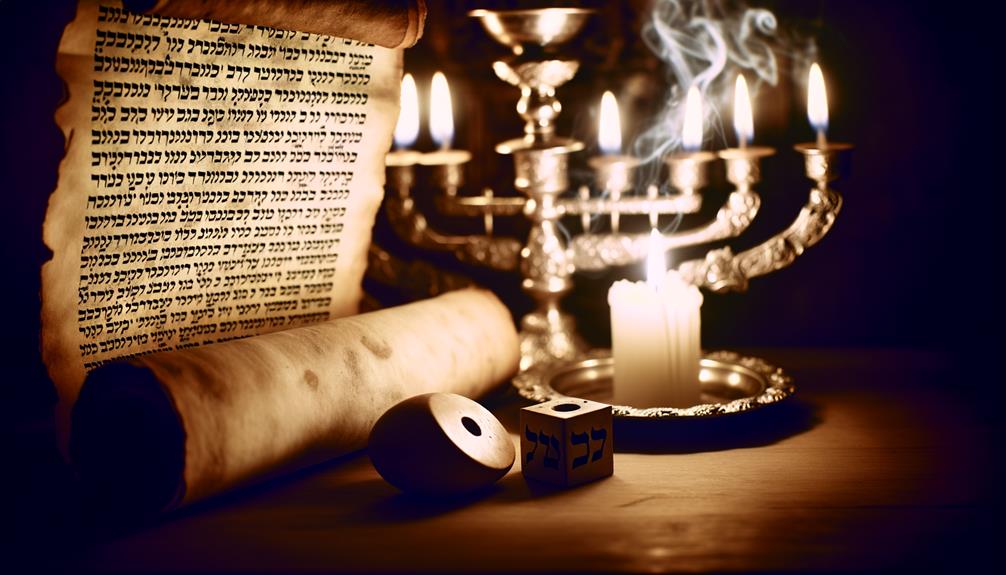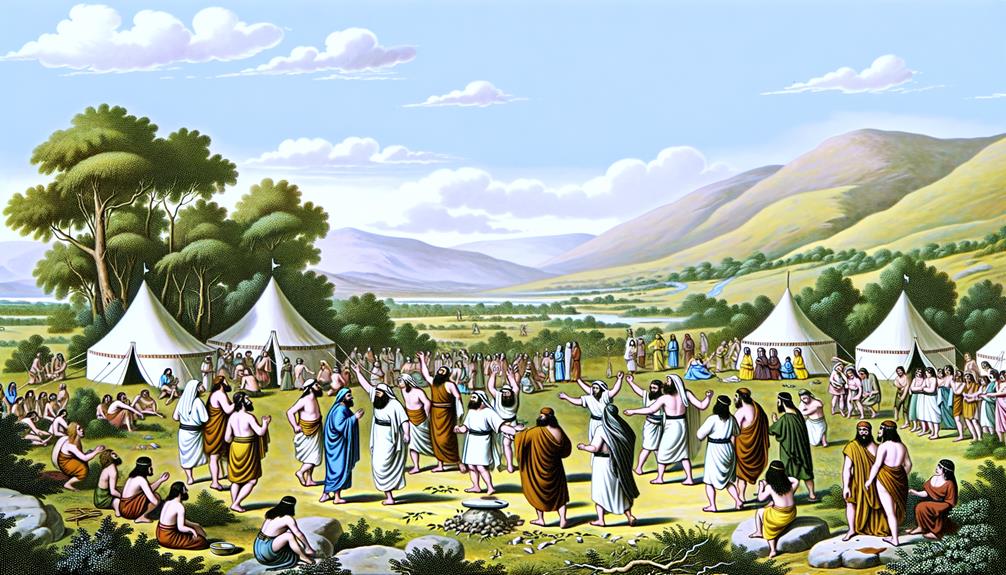Meaning of the Book of Leviticus in the Bible: Holiness
The Book of Leviticus is pivotal in the Torah and focuses on laws, rituals, and ethical directives that shaped ancient Israelite society after their exodus from Egypt. It codifies the sacrificial system, highlighting the necessity of atonement and maintaining a sacred relationship with God.
Central themes include the pursuit of holiness and ritual purity, reflecting on communal identity and divine favor. Leviticus also outlines the roles and duties of priests, reinforcing societal and religious structures.
Through its detailed regulations, it underscores the importance of moral conduct and communal responsibility, offering profound insights into ancient and contemporary theological thought. Continue to explore to uncover these intricate layers of spiritual and ethical significance.

Meaning of the Book of Leviticus in the Bible: Laws, Holiness, and Worship
| Aspect | Details |
|---|---|
| Book Overview | The third book of the Bible; outlines God’s instructions to Israel on worship, sacrifices, and holy living. |
| Key Themes | Holiness in worship and daily life, atonement for sins, God’s covenant, and community purity. |
| Main Characters | Moses (mediator of God’s laws), Aaron (high priest), Aaron’s sons, and the Israelites. |
| Key Events | Instructions on offerings and sacrifices, consecration of the priesthood, laws on purity, the Day of Atonement, and moral and ethical laws. |
| Symbolism | Sacrifices: Atonement for sin and restoration with God; Priestly Garments: Purity and dedication; Holy Days: God’s provision and blessings. |
| Historical Context | Believed to be written by Moses around 1440–1400 BCE, directed to the Israelites during their wilderness journey after the Exodus. |
| Purpose of the Book | To set guidelines for worship, teach about the holiness of God, and establish Israel as a holy nation set apart for Him. |
| Lessons for Today | Encourages living a holy life, worshiping God with reverence, and understanding the significance of obedience and atonement. |
Historical Context

The Book of Leviticus, the third book of the Torah and the Old Scriptures, was written in a historical context deeply rooted in the ancient Israelite society and their covenantal relationship with Yahweh.
Emerging after the Exodus, the text reflects a period where the Israelites, newly freed from Egyptian bondage, were establishing a distinct national and religious identity. The Israelites were evolving from a nomadic lifestyle to a more settled existence, requiring a codified system of laws and rituals.
Leviticus provided a divine framework for maintaining holiness and purity in worship and daily life, underscoring their unique covenantal bond with Yahweh. This code was vital for societal cohesion and religious fidelity, significant in their journey towards becoming a holy nation.
Purpose and Themes

The Book of Leviticus serves a pivotal role in outlining the Ritual Purity Laws, which were essential for maintaining the holiness and cohesion of the Israelite community.
Central to its themes is the Sacrificial System, designed not only as a means of atonement but also as a theological construct reflecting the relationship between God and His people.
These elements collectively underscore the importance of holiness as both a communal and individual mandate, integral to the identity and spiritual life of ancient Israel.
Ritual Purity Laws
While examining the Book of Leviticus, an in-depth analysis of the ritual purity laws reveals their multifaceted purpose and profound theological themes, which underscore the ancient Israelites’ understanding of holiness and communal identity.
These laws served not only as religious mandates but also as cultural markers, delineating the boundaries between the sacred and the profane. Their historical context and theological insights reflect a society deeply invested in maintaining divine favor.
Key themes include:
- Separation from impurity: Emphasizing the distinction between clean and unclean.
- Sanctity of the community: Ensuring communal purity to avert divine displeasure.
- Health and hygiene: Practical benefits in preventing disease.
These laws intricately wove the spiritual and everyday lives of the Israelites.
Holiness and Community
Understanding the concept of holiness within the Book of Leviticus reveals its central role in shaping the communal and religious life of ancient Israel. Holiness signifies separation from impurity and dedication to God, thereby defining both individual and corporate identity.
Historically, Leviticus provided a framework for societal conduct, emphasizing moral and ritual purity to maintain divine favor. Theologically, the text underscores that holiness permeates all aspects of life, from dietary laws to interpersonal relationships, reinforcing the covenantal bond between God and Israel.
This holistic approach guaranteed that every action, no matter how mundane, was an act of worship, fostering a cohesive, sanctified community. Consequently, Leviticus serves as a foundational text for understanding the interplay between sacredness and daily living.
Sacrificial System Explained
Examining the sacrificial system within the Book of Leviticus reveals its foundational role in expressing and maintaining the community’s holiness and covenantal relationship with God. This system served multifaceted purposes, encompassing both atonement and worship, reflective of the ancient Near Eastern context.
Theologically, it underscored the need for purification and reconciliation between humanity and the divine. Key offerings included:
- Burnt Offerings: Signifying complete surrender to God.
- Grain Offerings: Representing dedication and thanksgiving.
- Peace Offerings: Celebrating fellowship and communal harmony.
These rituals emphasized the gravity of sin, the sanctity of life, and the necessity of mediation through priesthood, thereby shaping Israel’s spiritual identity and ethical conduct.
Structure and Layout

The structure and layout of the Book of Leviticus are meticulously organized into distinct sections and chapters, each serving specific theological and liturgical purposes.
The text is primarily divided into segments that address various aspects of priestly laws, ritual purity, and ethical conduct, reflecting the centrality of holiness in Israelite worship and community life.
This arrangement not only underscores the significance of the priesthood but also facilitates a thorough understanding of the covenantal relationship between God and His people.
Sections and Chapters Overview
Divided into distinct sections and chapters, the Book of Leviticus is meticulously structured to address various aspects of Israelite worship, priestly duties, and holiness laws. This well-organized layout reflects the theological and societal priorities of ancient Israel, emphasizing ritual purity and covenantal faithfulness.
- Sacrificial System (Chapters 1-7): Guidelines for various offerings, underscoring the importance of atonement.
- Priestly Ordination (Chapters 8-10): Details the consecration of Aaron and his sons, highlighting priestly roles.
- Laws on Cleanliness (Chapters 11-15): Regulations on purity, critical for maintaining communal holiness.
This structure serves not only as a religious guide but also as a cultural framework for understanding divine-human relationships.
Priestly Laws Explained
Within the framework of Leviticus, the priestly laws are meticulously articulated to delineate the sacred responsibilities and ritualistic duties incumbent upon the Levitical priesthood.
These laws, primarily found in chapters 1-16, emphasize the necessity of purity, holiness, and proper conduct in worship. Historically, these regulations safeguarded the sanctity of the Tabernacle and later the Temple, ensuring that the priesthood maintained an unbroken line of sanctity.
Theologically, these laws underscore the separateness and holiness required to mediate between God and Israel. Detailed instructions cover sacrifices, offerings, ceremonial cleanliness, and the Day of Atonement, reflecting a structured approach to divine service.
This blueprint provided an essential foundation for Israel’s communal and spiritual life, reflecting God’s desire for order and sanctity.
Rituals and Sacrifices

Central to the Book of Leviticus, rituals and sacrifices serve as both a means of maintaining communal purity and as a profound expression of the Israelites’ covenantal relationship with God. These practices transcend mere ceremonial acts, embodying profound theological and historical significance.
Sacrifices, in particular, symbolize:
- Atonement: Offering sacrifices for sin and guilt underscores the necessity of reconciling with God.
- Thanksgiving: Grain offerings and peace offerings express gratitude for divine provision.
- Consecration: Burnt offerings signify total dedication and submission to God’s will.
Through these deeply rooted practices, Leviticus underscores the sacred dynamics between the divine and human spheres, embedding theological truths within the very life of the community.
Holiness and Purity

In the Book of Leviticus, the concepts of holiness and purity are intricately woven into the covenantal framework, reflecting the Israelites’ pursuit of a life that is in alignment with divine sanctity and moral integrity.
Holiness in Leviticus is not merely ritualistic; it embodies a moral and communal ethos, delineating a distinct identity for the Israelites as God’s chosen people.
Purity laws, encompassing dietary restrictions, bodily cleanliness, and ceremonial practices, serve to maintain both physical and spiritual cleanliness. These regulations underscore the separateness and sanctity required to dwell in God’s presence.
Theologically, holiness and purity symbolize the transcendence of the divine, setting a standard for human conduct and communal harmony, essential for sustaining the covenantal relationship with Yahweh.
Moral and Ethical Laws

Grounded in the broader narrative of covenantal fidelity, the moral and ethical laws in Leviticus articulate a divine blueprint for just and equitable living that transcends mere ritual observance.
These laws, embedded within the ancient Israelite context, underscore Yahweh’s demand for a community that mirrors divine holiness through ethical conduct.
Key principles include:
- Honesty and integrity: Prohibitions against lying and deceit reflect the value of truth.
- Justice and fairness: Laws against exploitation and partiality emphasize social equity.
- Compassion for the vulnerable: Mandates to protect the poor, the foreigner, and the oppressed show a commitment to societal welfare.
These precepts provide timeless ethical guidance, reflecting theological commitments to justice and holiness.
Priestly Duties

While the moral and ethical laws in Leviticus delineate general communal responsibilities, the priestly duties outlined within the text serve to define the specific roles and sacred responsibilities of the Aaronic priesthood.
These duties ensure the proper conduct of rituals and maintaining the sanctity of the tabernacle. Historically, they encompassed sacrificial offerings, purification rites, and the maintenance of holy objects.
Theologically, the priests functioned as intermediaries between God and Israel, symbolizing purity and divine order. The detailed regulations in Leviticus, such as those found in chapters 8-10, underscore the importance of holiness and obedience.
This codification of priestly duties underscores the overarching theme of sanctity, illustrating how the priesthood was integral to Israel’s covenantal relationship with God.
Major Festivals

Leviticus not only outlines the priestly duties but also meticulously details the major festivals that structure Israel’s liturgical calendar, emphasizing the cyclical nature of worship and the communal reaffirmation of faith.
These festivals serve as theological anchors, reminding the Israelites of God’s covenantal promises and historical acts of salvation.
- Passover (Pesach): Celebrates the Israelites’ deliverance from Egyptian bondage, symbolizing liberation and divine intervention.
- Feast of Weeks (Shavuot): Marks the giving of the Torah at Sinai, reinforcing the covenant and divine law.
- Feast of Booths (Sukkot): Commemorates the wilderness wanderings, highlighting dependence on God’s providence.
These festivals collectively underscore the rhythm of Israel’s sacred history and theological ethos.
Contemporary Relevance

Despite being an ancient text, the Book of Leviticus holds significant contemporary relevance, offering profound theological insights and ethical guidelines that continue to influence modern religious practice and moral philosophy. Its intricate legal codes and rituals not only reflect the historical context of its time but also provoke discussions around justice, community, and personal conduct today. For instance, the guidelines provided in Leviticus regarding purity and social relations challenge contemporary believers to confront issues like discrimination and inclusivity within their communities. Moreover, the text addresses concerns about sexually immoral behavior in scripture, prompting followers to examine the moral implications and cultural contexts of their faith in an increasingly complex world.
Historically, it established a framework for ritual purity, social justice, and communal harmony, principles that remain pertinent today.
Theologically, Leviticus underscores the concept of holiness, urging believers to emulate divine sanctity in daily life.
Ethical mandates such as care for the marginalized resonate with modern social justice movements.
Additionally, its dietary laws and health regulations find echoes in contemporary discussions on wellness and ethical eating.
Consequently, Leviticus serves not only as a historical document but also as a continuing source of moral and spiritual guidance.
Conclusion
The Book of Leviticus, embedded within the historical and cultural milieu of ancient Israel, serves as a theological compass guiding the Israelites towards holiness and communal purity.
Through detailed rituals, moral edicts, and priestly ordinances, it underscores the pursuit of sanctity.
How can modern readers grasp the relevance of these ancient practices?
By examining Leviticus’ intricate laws and principles, one can discern enduring values that transcend time, offering profound insights into the nature of divine-human relationships.






